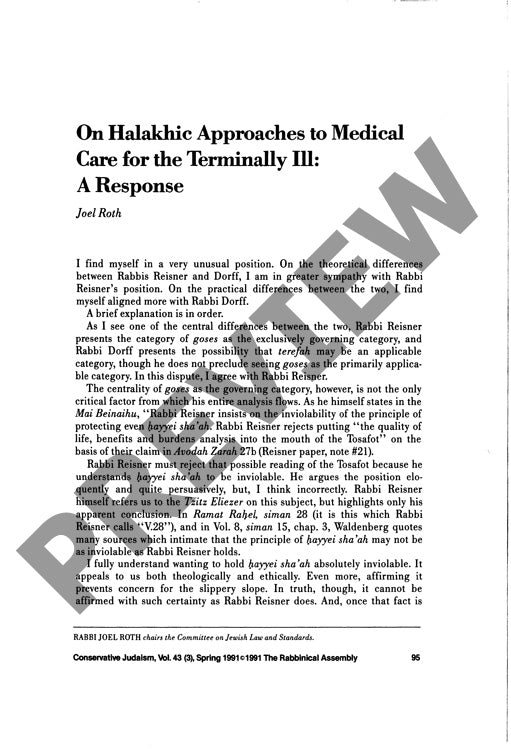On Halakhic Approaches to Medical Care F
Couldn't load pickup availability
When facing terminal illness, how absolute is Judaism's mandate to preserve life? A close examination of rabbinical arguments reveals greater flexibility in Jewish law regarding end-of-life care than traditionally assumed. Through comparative textual analysis of traditional sources and contemporary rabbinic positions, particularly those of Rabbis Reisner and Dorff, this investigation explores the complex interplay between the categories of *goses* (dying person) and *terefah* (mortally wounded) as governing legal frameworks. Analysis of classical texts, especially the Tosafot commentary on Avodah Zarah 27b, challenges conventional interpretations of *ḥayyei sha'ah* (temporary life) as absolutely inviolable. While theoretical findings align with Rabbi Reisner's emphasis on *goses* as the primary applicable category, practical considerations support Rabbi Dorff's more nuanced approach. The evidence suggests that despite compelling theological and ethical arguments for absolute protection of temporary life, halakhic tradition may permit a benefits and burdens analysis in certain end-of-life scenarios, offering a more adaptable framework for modern medical decision-making than previously recognized.

More Information
-
Physical Description
-
Publication Information
Published 1991
ISBN
-
Publication Credits
Joel Roth

